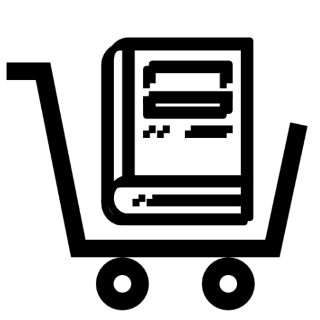Maciej Ruczaj
Abstract: The following paper reviews the schemes of memory behind the shaping of the contemporary vision of the Czech’s own history and the forms they take while materialising in the contemporary Czech Republic. Among the “great narratives” to have built up the picture of Czech history, a leading role was assumed by a traditional model, that sees the Czechs as a nation on the border of Slavic and Germanic superethnoses. Simultaneously, attention was drawn to its reformation and modernisation potential and Slavic character, the latter of which intensified after having confronted the Germanic world. The Czech post-1989 settlement with its communist past has only slightly impaired this idiom of memory; Soviet domination, especially the Warsaw Pact intervention in 1968, has to a great extent depreciated the value of “Slavicness” as an element of identification of the Czechs. Also, a Czech sense of nationality has faded to the benefit of a sense of “citizenship”—with the latter understood in a broad sense. Czech state institutions have only to a limited extent been committed to researching some details of the politics of history. Among these organisations have been, for example, the Institute for the Study of Totalitarian Regimes (Ústav pro studium totalitních režimů, ÚSTR), the Military History Institute (Vojenský historický ústav, VHÚ) and some other bodies, including the Czech National Museum (Národní muzeum). When analysing the responsibilities shouldered by the above institutions, one may observe an influential yet financially inadequate role of some NGOs, such as Pamět národa (The Memory of Nation) whereas a typical narrative pattern of Czechness has found its place in the educational system. As for the legal perspective, the Czech Republic managed to settle accounts with its communist past by passing both the Lustration Act and the Act on the Period of Lack of Freedom.
Keywords: Czech Republic, Czechoslovakia, politics of history, Institute for the Study of Totalitarian Regimes, ÚSTR, Military History Institute, VHÚ, Pamět’ národa, 1968, Hussites, House of Habsburg, communism, anti-communist opposition, lustration, Act on the period of lack of freedom
References
Act 451/1991: Zákon ze dne 4. října 1991, kterým se stanoví některé další předpoklady pro výkon některých funkcí ve státních orgánech a organizacích České a Slovenské Federativní Republiky, České republiky a Slovenské republiky. [Act of October 4, 1991 determining the terms for exercising some functions in state institutions and organisations of Czech and Slovak Federal Republic, Czech Republic and Slovak Republic]. Sbírka zákonů České a Slovenské Federativní Republiky, Ročník 1991, Částka 86, č. 451.
Act 480/1991: Zákon z dne 13. listopadu 1991 o době nesvobody [Act of November 13, 1991 on the Period of the Unfreedom]. Sbírka zákonů České a Slovenské Federativní Republiky, Ročník 1991, Částka 93, č. 480.
Act 198/1993: Zákon ze dne 9. července 1993 o protiprávnosti komunistického režimu a o odporu proti němu [Act of July 9, 1993 on Illegality of the Communist Regime and on Resistance Against it], Sbírka zákonů České Republiky, Ročník 1993, Částka 51, č. 198.
Bican 2016: Bican, Jaroslav. 2016. “Collegium Bohemicum: případ jedné neurózy”. Deník Referendum November 9, 2016. Accessed September 24, 2019. http://denikreferendum.cz/clanek/24074-collegiumbohemicum-pripad-jedne-neurozy.
Czech Government Declaration of July 13, 1992: Programové prohlášení vlády České Republiky ze dne 13. 7. 1992 [Program declaration of Czech Government of July 13, 1992]. Accessed September 17, 2019. https://www.vlada.cz/assets/clenove-vlady/historie-minulych-vlad/prehled-vlad-cr/1993-2010-cr/vaclav-klaus-1/Programove-prohlaseni-vlady.pdf.
Činátl 2011: Činátl, Kamil. 2011. Dějiny a vyprávění. Prague: Argo.
Drda 2009: Drda, Adam. 2009. “Pomník »postoloprtským událostem«”. Český Rozhlas November 9, 2009. http://www.rozhlas.cz/radio_cesko/glosa/_zprava/655483.
Havelka 1995: Spor o smysl českých dějin 1895–1938. Ed. Havelka, Miloš. 1995. Prague: Torst.
Jareš 2016: Jareš, Jakub. 2016. “Česká politika dějin” and museums, unpublished paper delivered at the Museums and the Change conference (Prague, November 23, 2016).
Kučera 2019: Stálo to za to? Ed. Kučera, Vladimír and Kučera, Karel. 2019. Prague: Edice ČT.
Lex Babiš 2014: “Lex Babiš. Lustrační zákon už nedosáhne na ministry a náměstky”. Lidove Noviny December 28, 2014. Accessed September 17, 2019. https://www.lidovky.cz/domov/lustracni-zakon-nedosahnena-ministry-ani-jejich-namestky.A141228_194913_ln_domov_ele.
Macek 1952: Macek, Josef. 1952. Husitské revoluční hnutí. Prague: Rovnost.
Padevět 2016: Padevět, Jiří. 2016. Krvavé léto 1945: poválečné násilí v českých zemích. Prague: Academia.
Palacky 1848–1867: Palacký, František. Dějiny národu českého w Čechách a v Moravě, vol. 1–5. Praha 1848–1867. http://kramerius.nkp.cz/kramerius/MShowMonograph.do?id=20988&author=Palacký_František.
Pekář 1929: Pekář, Josef. 1929. O smyslu českých dějin. Prague: Leda.
PM Pithart Declaration of July 2, 1990: Programové prohlášení vlády Petra Pitharta ze dne 2.7.1990 [Program declaration of the Petr Pithart’s government of July 2, 1990]. Accessed September 17, 2019. https://www.vlada.cz/assets/clenove-vlady/historie-minulych-vlad/prehled-vlad-cr/1990-1992-cr/petr-pithart/ppv-1990-1992-pithart.pdf.
Staněk 2005: Staněk, Tomáš. 2005. Poválečné “excesy” v českých zemích v roce 1945 a jejich vyšetřování. Prague: Ústav pro soudobé dějiny.
State cultural policy 2015: Státní kulturní politika na léta 2015–2020 [Document “State’s cultural policy”, as adopted by Decision No. 266 of June 15, 2015 of the Government of the Czech Republic]. Ministerstvo Kultury ČR. Accessed September 17, 2019. https://www.mkcr.cz/statni-kulturni-politika-69.html.
Stehlík 2013: Stehlík, Michal. 2013. “Buďte požehnány spory o ÚSTR”. Hospodářské noviny April 9, 2013. Accessed September 17, 2019. https://ihned.cz/c1-59654370-budte-pozehnany-sporyo-ustr.
Šustrová 2007: Šustrová, Petruška. 2007. “Sláva!”. Lidové noviny May 4, 2007.
Vondra 2017: “Sąsiedzi o odmiennym bagażu doświadczeń. Rozmowa z Alexandrem Vondrą” [“Neighbours wih different experiences. Interview with Alexander Vondra”]. In Wolność. Polskie i czeskie dylematy [Freedom. Polish and Czech dilemmas]. Ed. Kloczkowski, Jacek. 2017. Cracow: Ośrodek Myśli Politycznej.
 E-Księgarnia
E-Księgarnia